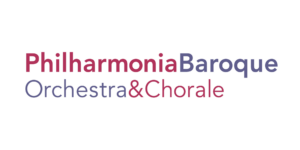Felix Mendelssohn (1809–1847)
Felix Mendelssohn was born into an intellectual Jewish family in Hamburg, Germany. His grandfather Moses Mendelssohn was a philosopher who has been called the “father” of Reform Judaism.
Mendelssohn was a great prodigy. He studied composition under Carl Friedrich Zelter starting at age eight, made his performance debut at age nine, and composed 12 symphonies between the ages of 12 and 14. Goethe was so impressed with Mendelssohn’s early work that he argued the boy’s musical maturity far exceeded that of the young Wolfgang Amadeus Mozart.
Mendelssohn’s music lies within the early romantic period. His work, however, betrays a debt to the baroque, due in part perhaps to Zelter’s conservative tastes. Mendelssohn is remembered for his commitment to Johann Sebastian Bach. He arranged and conducted Bach’s St. Matthew Passion at the Berlin Singakademie in 1829 – the first time this work had been publicly performed since Bach’s death in 1750. In addition to returning Bach to public consciousness, Mendelssohn also endeavored to restore George Frideric Handel’s reputation, by publishing the first critical editions of Handel’s oratorios and organ music.
The composer became a convert to the Lutheran church. Nevertheless, anti-Semitism sometimes hindered Mendelssohn’s career, such as when the Berlin Singakademie failed to hire him in 1833. This setback notwithstanding, he became musical director in Dusseldorf in 1833, went on to conduct Leipzig’s Gewandhaus Orchestra in 1835, and founded the Leipzig Conservatory in 1843. Mendelssohn was intent on establishing the reputation of Leipzig as a musical center (the city had also been Bach’s home for many years). Mendelssohn is also strongly connected to Britain. He toured there on numerous occasions and enjoyed a loyal following.
Mendelssohn died at the age of 37. He left behind a large body of work, including symphonies, operas, concertos, chorales and songs, as well as music for piano and organ. His better known works include the oratorios St. Paul and Elijah, the Violin Concerto in E minor, and the Italian Symphony.

